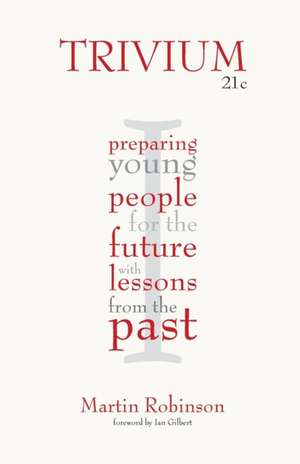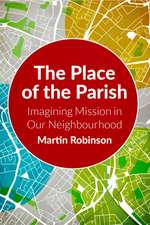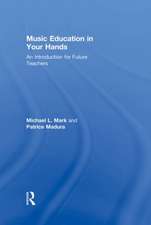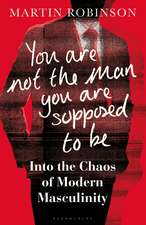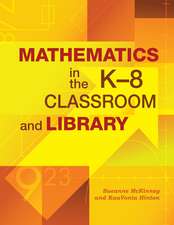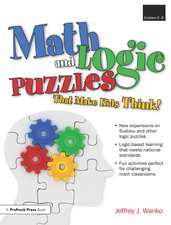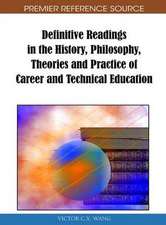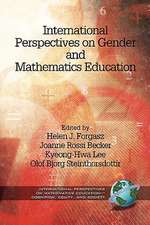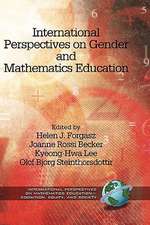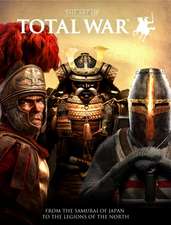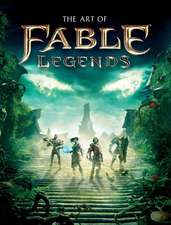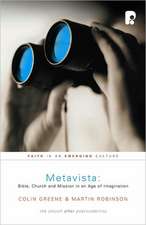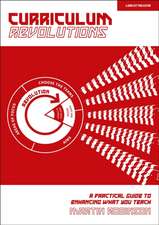Trivium 21st Century: Preparing Young People for the Future with Lessons from the Past
Autor Martin Robinsonen Limba Engleză Paperback – 17 iun 2013
Universities in the Middle Ages focused on three skills to develop the intellectual abilities of students, one - grammar, two - logic, and three - rhetoric. In this well-researched and fascinating work discover how these three tenets are as relevant in education today as they were eight hundred years ago.
Martin Robinson has taught for twenty years in state schools in London, as a teacher, head of department, head of faculty, assistant head teacher, and AST. He's now an entrepreneur, company director, and playwright interested in developing creativity in schools.
Education policy and practice is a battleground. Traditionalists argue for the teaching of a privileged type of hard knowledge and deride soft skills. Progressives deride learning about great works of the past, preferring soft 21st century skills such as creativity and critical thinking. By looking at the great thinkers from Ancient Greece to the present day and through interviews with opinion formers, policy makers and practitioners, including Alain de Botton, Daniel T. Willingham, Matthew Taylor and Elizabeth Truss MP, this book explores whether a contemporary trivium (Grammar, Dialectic and Rhetoric) can unite institutions, teachers, politicians and parents in the common pursuit of providing a great education for our children in the 21st century.
Martin Robinson sets out on a quest to discover the kind of education he wishes for his daughter and we all learn a great deal in the process. I love his writing: wise, well informed, provocative, thinking-out-loud. Robinson engages his reader from first to last. A terrific feat.
Melissa Benn, writer and author of School Wars: The Battle for Britain’s Education
Trivium 21c is essential reading for all educators and observers of the seemingly endless public debate about education who wish to go beyond simplistic polarities and find a way to integrate and relate in a historical context seemingly contradictory approaches.
Ian Bauckham, Head Teacher and President,
Association of School and College Leaders (ASCL) 2013-14
In schools today a focus on contemporary relevance too often trumps educational depth. Martin Robinson makes a compelling case that turning instead to the tradition of the liberal arts can open the minds of a new generation.
Marc Sidwell, co-author of The School of Freedom, Managing Editor City A.M.
For the open-minded reader there is much to learn. I agree with Robinson that for students to acquire a sound blend of knowledge, questioning expertise, and communication skills (i.e. the trivium) is the basis of a great education.
Dr Jacek Brant, Head of Curriculum, Pedagogy and Assessment (CPA), Senior Lecturer in Business Education, Institute of Education, University of London
Anybody interested in education, citizenship, or how we want our children to learn would find this a thought-provoking read.
Sunder Katwala, Director of British Future, the independent think tank
After 20 years working in London in state schools – as teacher, head of department, AST, senior leader and QCA associate with a focus on creativity – Martin Robinson is now a parent, writer and consultant with an interest in how the arts should influence education.
Martin Robinson has taught for twenty years in state schools in London, as a teacher, head of department, head of faculty, assistant head teacher, and AST. He's now an entrepreneur, company director, and playwright interested in developing creativity in schools.
Education policy and practice is a battleground. Traditionalists argue for the teaching of a privileged type of hard knowledge and deride soft skills. Progressives deride learning about great works of the past, preferring soft 21st century skills such as creativity and critical thinking. By looking at the great thinkers from Ancient Greece to the present day and through interviews with opinion formers, policy makers and practitioners, including Alain de Botton, Daniel T. Willingham, Matthew Taylor and Elizabeth Truss MP, this book explores whether a contemporary trivium (Grammar, Dialectic and Rhetoric) can unite institutions, teachers, politicians and parents in the common pursuit of providing a great education for our children in the 21st century.
Martin Robinson sets out on a quest to discover the kind of education he wishes for his daughter and we all learn a great deal in the process. I love his writing: wise, well informed, provocative, thinking-out-loud. Robinson engages his reader from first to last. A terrific feat.
Melissa Benn, writer and author of School Wars: The Battle for Britain’s Education
Trivium 21c is essential reading for all educators and observers of the seemingly endless public debate about education who wish to go beyond simplistic polarities and find a way to integrate and relate in a historical context seemingly contradictory approaches.
Ian Bauckham, Head Teacher and President,
Association of School and College Leaders (ASCL) 2013-14
In schools today a focus on contemporary relevance too often trumps educational depth. Martin Robinson makes a compelling case that turning instead to the tradition of the liberal arts can open the minds of a new generation.
Marc Sidwell, co-author of The School of Freedom, Managing Editor City A.M.
For the open-minded reader there is much to learn. I agree with Robinson that for students to acquire a sound blend of knowledge, questioning expertise, and communication skills (i.e. the trivium) is the basis of a great education.
Dr Jacek Brant, Head of Curriculum, Pedagogy and Assessment (CPA), Senior Lecturer in Business Education, Institute of Education, University of London
Anybody interested in education, citizenship, or how we want our children to learn would find this a thought-provoking read.
Sunder Katwala, Director of British Future, the independent think tank
After 20 years working in London in state schools – as teacher, head of department, AST, senior leader and QCA associate with a focus on creativity – Martin Robinson is now a parent, writer and consultant with an interest in how the arts should influence education.
Preț: 123.65 lei
Nou
Puncte Express: 185
Preț estimativ în valută:
23.66€ • 24.61$ • 19.54£
23.66€ • 24.61$ • 19.54£
Carte disponibilă
Livrare economică 24 martie-07 aprilie
Livrare express 07-13 martie pentru 23.99 lei
Preluare comenzi: 021 569.72.76
Specificații
ISBN-13: 9781781350546
ISBN-10: 178135054X
Pagini: 268
Dimensiuni: 140 x 216 x 18 mm
Greutate: 0.34 kg
Editura: INDEPENDENT THINKING
ISBN-10: 178135054X
Pagini: 268
Dimensiuni: 140 x 216 x 18 mm
Greutate: 0.34 kg
Editura: INDEPENDENT THINKING
Cuprins
Foreword by Ian Gilbert
Introduction: An Unexamined Life is not Worth Living
1 A Trivial Pursuit?
2 The Trivium
3 Our Dramatis Personae: The Grammarians, the Dialecticians, and
the Rhetoricians
4 The Liberal Arts: A New Curriculum is Born
5 The Rise of the Rational: The Fall of the Trivial?
6 Trivium: A Clash of Cultures
7 A Crack in Everything: The Imperfect Arts
8 Grammar: From Rules of Language to Cultural Capital
9 Dialectic: Logic, Dialectic, and Logos
10 Rhetoric: Communication, Citizenship, and Community
11 We Have a Montaigne to Climb
12 The Professors
13 The Grammarians vs the Dialecticians
14 The Contemporary Trivium
Postscript: A Bit of Trivia
Acknowledgements
Bibliography and Reading List
Index
Recenzii
Martin Robinson sets out on a quest to discover the kind of education he wishes
for his daughter and we all learn a great deal in the process. I love his writing: wise,well informed, provocative, thinking-out-loud. Robinson engages his reader from first to last. A terrific feat.
Melissa Benn, writer and author of School Wars: The Battle for Britain’s Education
Part reflective autobiography, part educational manifesto, Trivium 21c is both a
richly erudite and engagingly relevant exploration of the purposes and philosophies underlying the enterprise of education. From ancient Greece through to contemporary controversy, Robinson draws resonantly on his experience as a student and a teacher to demonstrate that the ‘trivium’, the ‘triple way’, of grammar,dialectic, and rhetoric, still lies at the heart of a ‘good education’, albeit in new forms. With refreshing realism, he recognises that teachers in their work in the classroom often transcend many of the political storms about education. Citing almost every contemporary protagonist from our own era, he advances an approach which he describes as ‘progressive traditionalism’. Trivium 21c is essential reading for all educators and observers of the seemingly endless public debate about education who wish to go beyond simplistic polarities and find a way to integrate and relate in a historical context seemingly contradictory approaches.
Ian Bauckham Head Teacher and President, Association of School and College Leaders (ASCL) 2013-14
In schools today, a focus on contemporary relevance too often trumps educational
depth. Martin Robinson makes a compelling case that turning instead to the tradition of the liberal arts can open the minds of a new generation.
Marc Sidwell, co-author of The School of Freedom, Managing Editor City A.M.
This is a charming book which is fun to read; it is contemplative and self-reflective and at the same time it is well-researched, informative, and genuinely scholarly. What the book does very well is to unpick the tensions between educationalist progressives and traditionalists and it attempts to identify differences but also importantly to seek common ground. Indeed it is a historical tour de force examining the origins and development of the ‘liberal arts’ from the early Greeks through Shakespearian times to the present day. What makes the book so readable is that it is a journey of self-reflection on what it means to be educated from the point of view of the author as a schoolboy, a teacher, and then a parent seeking an appropriate school for his daughter.
The early part of the book looks at the author’s own schooling and the frustrations he experienced. Learning appeared to be chaotic and many pupils were apparently left to ‘fail’ by not being equipped with the skills necessary to succeed at school. The book then traces his later employment and his experiences as a schoolteacher and how he changed the way he taught to make learning more meaningful and authentic for his pupils. His journey is one of becoming a teacher who adopts innovative approaches to teaching: teaching for meaning, values, and deep learning.
The argument of the book is for a ‘trivium’ of grammar, dialectic, and rhetoric.
The three elements of the trivium would be developed simultaneously, and once
mastered it is expected that a student would have acquired the knowledge, the
reasoning skills, and the ability to communicate well, which would stand them in
good stead for a good life. What Robinson is asking for is the building blocks for thriving at school, the underpinning principles of learning that many teachers assume that pupils already possess but which many do not. I am not convinced that this book will unite traditionalists and progressives in a mutual quest of school improvement, but for the open-minded reader there is much to learn. I agree with Robinson that for students to acquire a sound blend of knowledge, questioning expertise, and communication skills (i.e. the trivium) is the basis of a great education.
Dr Jacek Brant, Head of Curriculum, Pedagogy and Assessment (CPA), Senior Lecturer in Business Education, Institute of Education, University of London
Martin Robinson embarks on a highly engaging personal quest to discover what
matters in education. By drawing not just on lessons and frustrations from his
extensive experience as an educator, but also on the hopes and anxieties that he
feels as a new parent, he transcends the often stale trench lines of many arguments about education between ‘traditionalists’ and ‘progressives’, recognising that rival important insights about the foundations of learning and knowledge need not be polar opposites. Robinson’s own synthesis offers an ambitious vision of how to pursue an educational ideal as a practical project. Anybody interested in education, citizenship, or how we want our children to learn would find this a thought-provoking read.
Sunder Katwala, Director of British Future,
the independent think tank
for his daughter and we all learn a great deal in the process. I love his writing: wise,well informed, provocative, thinking-out-loud. Robinson engages his reader from first to last. A terrific feat.
Melissa Benn, writer and author of School Wars: The Battle for Britain’s Education
Part reflective autobiography, part educational manifesto, Trivium 21c is both a
richly erudite and engagingly relevant exploration of the purposes and philosophies underlying the enterprise of education. From ancient Greece through to contemporary controversy, Robinson draws resonantly on his experience as a student and a teacher to demonstrate that the ‘trivium’, the ‘triple way’, of grammar,dialectic, and rhetoric, still lies at the heart of a ‘good education’, albeit in new forms. With refreshing realism, he recognises that teachers in their work in the classroom often transcend many of the political storms about education. Citing almost every contemporary protagonist from our own era, he advances an approach which he describes as ‘progressive traditionalism’. Trivium 21c is essential reading for all educators and observers of the seemingly endless public debate about education who wish to go beyond simplistic polarities and find a way to integrate and relate in a historical context seemingly contradictory approaches.
Ian Bauckham Head Teacher and President, Association of School and College Leaders (ASCL) 2013-14
In schools today, a focus on contemporary relevance too often trumps educational
depth. Martin Robinson makes a compelling case that turning instead to the tradition of the liberal arts can open the minds of a new generation.
Marc Sidwell, co-author of The School of Freedom, Managing Editor City A.M.
This is a charming book which is fun to read; it is contemplative and self-reflective and at the same time it is well-researched, informative, and genuinely scholarly. What the book does very well is to unpick the tensions between educationalist progressives and traditionalists and it attempts to identify differences but also importantly to seek common ground. Indeed it is a historical tour de force examining the origins and development of the ‘liberal arts’ from the early Greeks through Shakespearian times to the present day. What makes the book so readable is that it is a journey of self-reflection on what it means to be educated from the point of view of the author as a schoolboy, a teacher, and then a parent seeking an appropriate school for his daughter.
The early part of the book looks at the author’s own schooling and the frustrations he experienced. Learning appeared to be chaotic and many pupils were apparently left to ‘fail’ by not being equipped with the skills necessary to succeed at school. The book then traces his later employment and his experiences as a schoolteacher and how he changed the way he taught to make learning more meaningful and authentic for his pupils. His journey is one of becoming a teacher who adopts innovative approaches to teaching: teaching for meaning, values, and deep learning.
The argument of the book is for a ‘trivium’ of grammar, dialectic, and rhetoric.
The three elements of the trivium would be developed simultaneously, and once
mastered it is expected that a student would have acquired the knowledge, the
reasoning skills, and the ability to communicate well, which would stand them in
good stead for a good life. What Robinson is asking for is the building blocks for thriving at school, the underpinning principles of learning that many teachers assume that pupils already possess but which many do not. I am not convinced that this book will unite traditionalists and progressives in a mutual quest of school improvement, but for the open-minded reader there is much to learn. I agree with Robinson that for students to acquire a sound blend of knowledge, questioning expertise, and communication skills (i.e. the trivium) is the basis of a great education.
Dr Jacek Brant, Head of Curriculum, Pedagogy and Assessment (CPA), Senior Lecturer in Business Education, Institute of Education, University of London
Martin Robinson embarks on a highly engaging personal quest to discover what
matters in education. By drawing not just on lessons and frustrations from his
extensive experience as an educator, but also on the hopes and anxieties that he
feels as a new parent, he transcends the often stale trench lines of many arguments about education between ‘traditionalists’ and ‘progressives’, recognising that rival important insights about the foundations of learning and knowledge need not be polar opposites. Robinson’s own synthesis offers an ambitious vision of how to pursue an educational ideal as a practical project. Anybody interested in education, citizenship, or how we want our children to learn would find this a thought-provoking read.
Sunder Katwala, Director of British Future,
the independent think tank
Notă biografică
Martin had taught for 20 years in State schools in London, as a teacher, head of department, head of faculty, assistant head teacher and AST. Now an entrepreneur, company director and Playwright and interested in developing creativity in schools.
Ian Gilbert is one of the UK's leading educational innovators, speakers and writers with twenty years experience working with young people and educationalists around the world. He is the founder of Independent Thinking Ltd, the editor of the Independent Thinking Press and the author of a number of titles including Why Do I Need a Teacher When I've Got Google?. His book The Little Book of Thunks won the first education book award from the Society of Authors for 'an outstanding example of traditionally published non-fiction that enhances teaching and learning'.
www.independentthinking.com
Ian Gilbert is one of the UK's leading educational innovators, speakers and writers with twenty years experience working with young people and educationalists around the world. He is the founder of Independent Thinking Ltd, the editor of the Independent Thinking Press and the author of a number of titles including Why Do I Need a Teacher When I've Got Google?. His book The Little Book of Thunks won the first education book award from the Society of Authors for 'an outstanding example of traditionally published non-fiction that enhances teaching and learning'.
www.independentthinking.com
Extras
Foreword by Ian Gilbert
It’s difficult to read the news these days without seeing some story on education being played out in governments, think tanks, conference rooms,
staff rooms, classrooms or even streets somewhere in the world. And
rightly so. Education is both a mirror of society as it is now and also, crucially,a reflection of what that society will become. What we do with the
minds of our young people today will be come back to help us – or haunt
us – for decades to come.
Or, in the words of Christa McAuliffe, the teacher on board the ill-fated
Challenger space shuttle expedition in 1986: ‘I touch the future … I teach’.
Often, though, when education is being talked about there is no agreement
as to what, specifically, is actually being discussed. For example, when
teachers talk about education, they are more often than not referring to a
process in which they teach and children learn. All being well. When the politicians and strategists talk about it, however, they are often referring to
the system within which that teaching and learning process operates. Parents may mean something else altogether, one perhaps more related to discipline, employment chances, and life skills. And the young people themselves? Well, often they never get the chance to voice an opinion about just what exactly they are spending the major portion of their first 20 years or so doing.
Yet beyond the world of processes and systems – or maybe underpinning them – there is another debate too, one that goes on often unnoticed and has vexed some of the greatest minds for millennia. It is the question of what we want schools and schooling to achieve for our children, of what having ‘an education’ entails, of what ‘being educated’ actually means?
It is a debate over which the ancient Greeks battled and that still fills the
letters pages of national newspapers and the comments sections on news websites and blogs today. And it is a debate that is very much at the heart of this fascinating and important book.
Through a combination of extensive historical research, face-to-face dialogue
with some of the main protagonists currently in the debate and his personal experience both as a teacher and as a parent, desperately trying to find the right sort of education for his daughter, Martin weaves a complex and compelling story. It is a journey that stretches back to the ancient Greeks and the ‘fork in the road’ they encountered that evolved into the Trivium of the medieval world and that rages in the 21st century educational diaspora of academies, charter schools, free schools, national and common core curricula, standardized testing and assessment, and practically every aspect of educational policy and discussion worldwide.
If you are involved in education in any fashion – from teacher to parent to
governor to educator to inspector to policy maker – and you have an opinion
about what ‘an educated person’ should look like, then you have joined the debate. What’s more, that opinion means you will have taken sides, whether you know it or not. This book will help you make the right choices for the right reasons and, who knows, may even help us create the sort of consensus that will bring all sides together. In doing so, we can all help forge an education system and an education process that genuinely does what we want it to do – bring the very best out of, and put the very best into, every child.
Ian Gilbert
Hong Kong
Textul de pe ultima copertă
Education policy and practice is a battleground. Traditionalists argue for the teaching of a privileged type of hard knowledge and deride soft skills. Progressives deride learning about great works of the past, preferring soft 21st century skills such as creativity and critical thinking. By looking at the great thinkers from Ancient Greece to the present day and through interviews with opinion formers, policy makers and practitioners, including Alain de Botton, Daniel T. Willingham, Matthew Taylor and Elizabeth Truss MP, this book explores whether a contemporary trivium (Grammar, Dialectic and Rhetoric) can unite institutions, teachers, politicians and parents in the common pursuit of providing a great education for our children in the 21st century.
"Martin Robinson sets out on a quest to discover the kind of education he wishes for his daughter and we all learn a great deal in the process. I love his writing: wise, well informed, provocative, thinking-out-loud. Robinson engages his reader from first to last. A terrific feat."
Melissa Benn, writer and author of School Wars: The Battle for Britain’s Education
"Trivium 21c is essential reading for all educators and observers of the seemingly endless public debate about education who wish to go beyond simplistic polarities and find a way to integrate and relate in a historical context seemingly contradictory approaches."
Ian Bauckham, Head Teacher and President, Association of School and College Leaders (ASCL) 2013-14
"In schools today a focus on contemporary relevance too often trumps educational depth. Martin Robinson makes a compelling case that turning instead to the tradition of the liberal arts can open the minds of a new generation.
Marc Sidwell, co-author of The School of Freedom, Managing Editor City A.M.
For the open-minded reader there is much to learn. I agree with Robinson that for students to acquire a sound blend of knowledge, questioning expertise, and communication skills (i.e. the trivium) is the basis of a great education.
Dr Jacek Brant, Head of Curriculum, Pedagogy and Assessment (CPA), Senior Lecturer in Business Education, Institute of Education, University of London
Anybody interested in education, citizenship, or how we want our children to learn would find this a thought-provoking read."
Sunder Katwala, Director of British Future, the independent think tank
After 20 years working in London in state schools – as teacher, head of department, AST, senior leader and QCA associate with a focus on creativity – Martin Robinson is now a parent, writer and consultant with an interest in how the arts should influence education.
Education
Descriere
Lessons from the Middle Ages to prepare young people for the 21st century.
